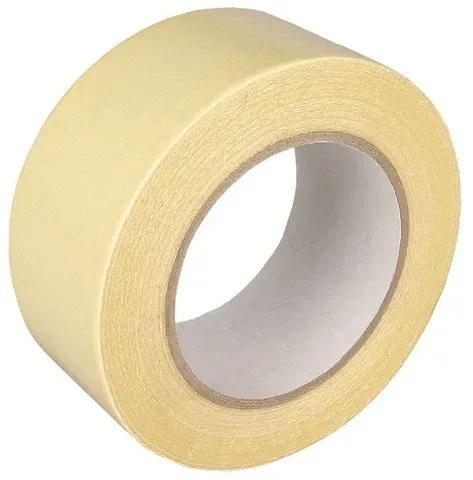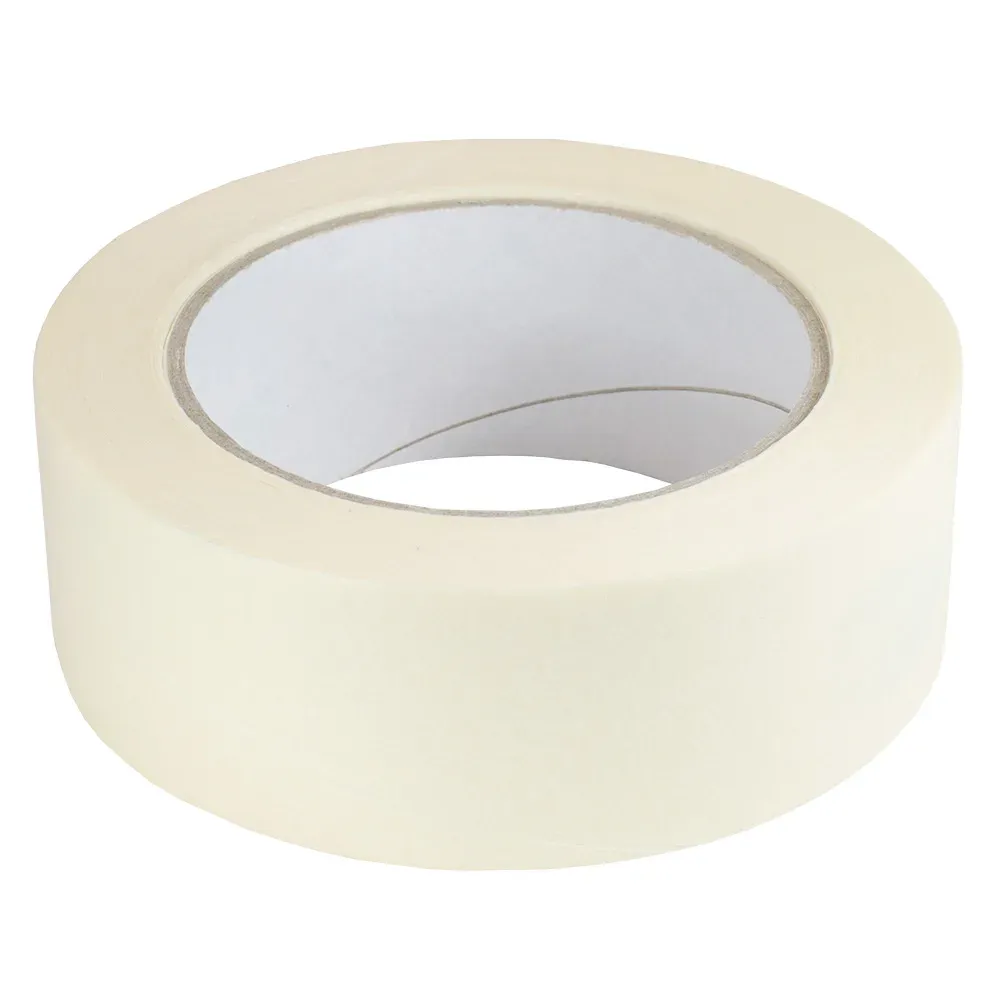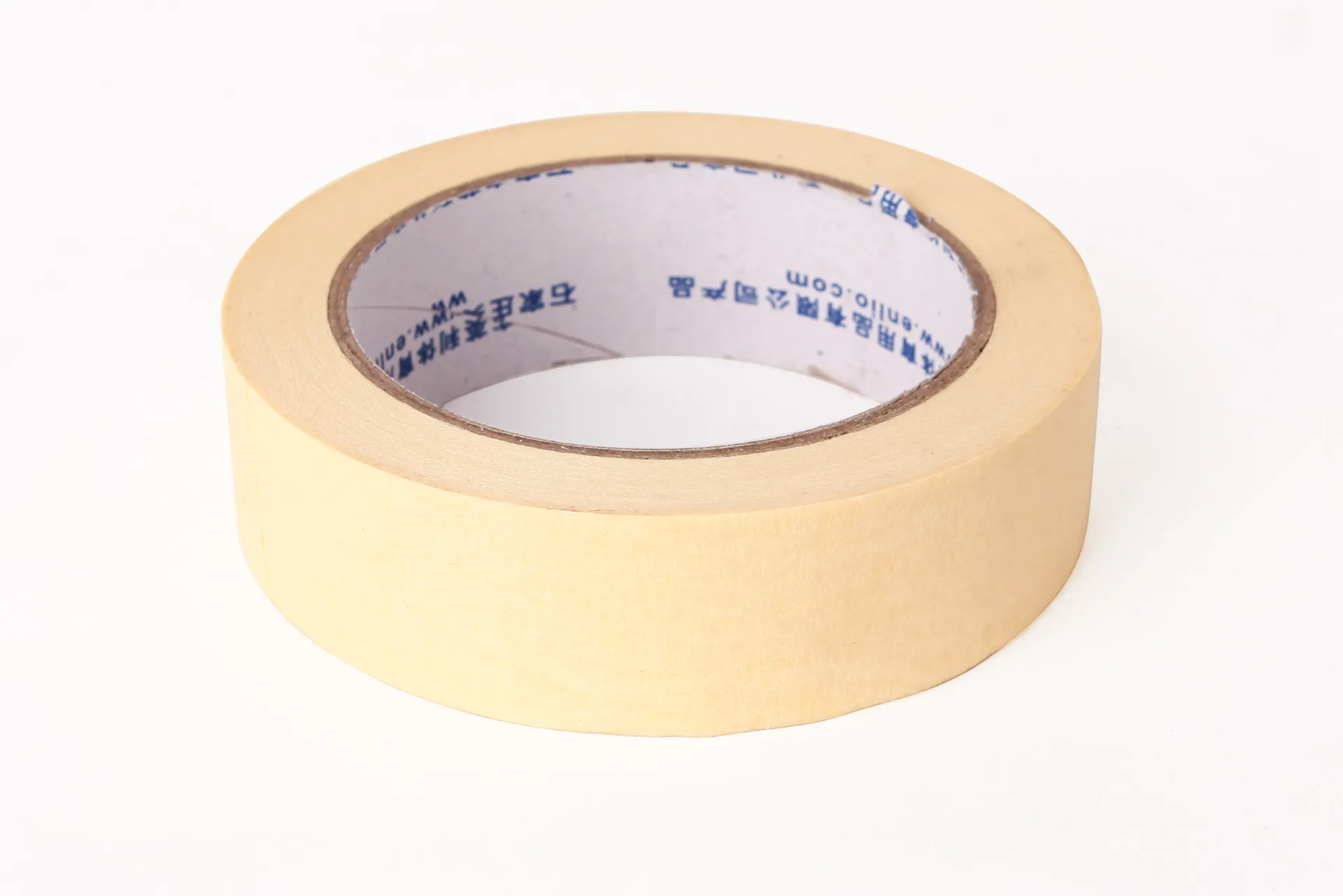Premium Masking Tape: Pro Results, Clean Edges & Versatility
Introduction to High-Performance Masking Tape and Industry Trends
In diverse industrial applications, the choice of adhesive solutions plays a critical role in efficiency, quality, and operational cost. Among these, masking tape stands out as an indispensable tool, far exceeding its conventional perception as a simple household item. Modern industrial masking tape is engineered for precision, durability, and specific environmental resistances, addressing complex requirements in sectors ranging from automotive and aerospace to electronics and construction. The global market for industrial tapes, including specialized masking varieties, is projected to grow significantly, driven by advancements in materials science, stricter regulatory standards, and increasing demand for precision manufacturing processes. Innovations continually enhance properties such as clean removal, high-temperature resistance, and conformability, expanding the utility of this versatile product.
Key trends in the professional adhesive tape market include the development of eco-friendly, solvent-free adhesives, higher performance tapes for extreme conditions, and automation-compatible solutions. Specialized products like mt masking tape, known for its aesthetic and functional versatility, often inspire similar innovations in industrial grades seeking both performance and user experience. The demand for pro masking tape capable of withstanding harsh industrial environments—such as high-temperature paint baking cycles or aggressive chemical exposures—is on a steep upward trajectory, necessitating advanced material composites and adhesive formulations.
The Precision Manufacturing Process of Industrial Masking Tape
The production of high-performance masking tape is a sophisticated multi-stage process, demanding meticulous control over material selection and manufacturing parameters. Unlike simple adhesive products, industrial-grade masking tapes are engineered to deliver precise performance characteristics such as specific adhesion levels, clean removal, and temperature resistance.
Materials & Components:
- Backing Material: Typically fine crepe paper or flatback paper, selected for its conformability, tensile strength, and tear resistance. For specialized applications, film backings (e.g., polyester, polyimide) may be used for higher temperature or chemical resistance.
- Adhesive: Pressure-sensitive adhesives (PSAs), predominantly natural rubber-based for strong adhesion and clean removal, or acrylic-based for enhanced UV and temperature resistance. The adhesive formulation is critical to ensure optimal tack, shear, and peel strength without leaving residue.
- Release Coat: Applied to the non-adhesive side of the backing to allow for smooth unwinding from the roll without delamination or transfer.
Manufacturing Process Steps:
Schematic Process Flow:
- 1. Backing Preparation: Large rolls of crepe paper or film are unwound and pre-treated. This might involve corona treatment to enhance adhesion of subsequent coatings.
- 2. Release Coat Application: A thin, uniform layer of release agent is applied to one side of the backing material via specialized coating heads (e.g., gravure, reverse roll). This ensures easy unwinding.
- 3. Adhesive Coating: The pressure-sensitive adhesive is precisely applied to the opposite side of the backing. This is a critical step, determining the tape's adhesion profile. Coating thickness and uniformity are rigorously monitored.
- 4. Drying & Curing: The freshly coated tape passes through ovens to dry and cure the adhesive and release coatings. Temperature and dwell time are controlled to ensure optimal adhesive properties and cross-linking.
- 5. Slitting: The wide master rolls of coated material are then precision-slit into various widths (e.g., 6mm, 12mm, 24mm, 48mm, 72mm) using rotary blades, ensuring clean, consistent edges.
- 6. Winding & Packaging: The slit tape is wound onto cores to form individual rolls and then packaged, often in protective film or boxes, ready for distribution.
Throughout this process, stringent quality control measures are applied, adhering to standards such as ISO 9001. Testing includes visual inspection, adhesive peel strength, shear adhesion, tensile strength, elongation, and temperature resistance. The typical service life of properly stored industrial masking tape can range from 12 to 24 months, depending on environmental conditions. Target industries include automotive refinishing, construction, general industrial MRO (Maintenance, Repair, and Operations), and electronics manufacturing. Advantages demonstrated in typical application scenarios include significant energy saving through efficient paint masking processes and superior corrosion resistance due to protective backing and residue-free removal.

Technical Specifications and Performance Parameters
Understanding the technical specifications of masking tape is crucial for B2B decision-makers to select the appropriate product for specific industrial demands. These parameters dictate performance, durability, and suitability for various applications, ensuring optimal outcomes and preventing costly rework.
Key Performance Indicators:
- Adhesion (Oz/Inch or N/10mm): Measures the force required to remove tape from a standard surface at a specific angle and speed. Crucial for secure masking and clean removal.
- Tensile Strength (lbs/Inch or N/10mm): The force required to break a strip of tape, indicating its resistance to stretching and tearing during application and removal.
- Elongation (%): The percentage increase in length before the tape breaks, signifying its conformability to irregular surfaces.
- Thickness (mils or microns): Total caliper of the tape, including backing and adhesive, impacting conformability and durability.
- Temperature Resistance: The maximum temperature the tape can withstand without degradation of adhesive properties or backing material. Essential for paint baking, powder coating, or extreme environment applications.
- UV Resistance: Ability to withstand ultraviolet radiation without becoming brittle or leaving residue, important for outdoor or long-term applications.
- Solvent Resistance: The tape's ability to maintain integrity when exposed to common industrial solvents, paints, and chemicals.
Typical Product Specification Table for Industrial Masking Tape:

Application Scenarios and Technical Advantages
The versatility of high-quality masking tape extends across numerous industrial sectors, offering significant technical advantages over less specialized adhesive solutions. Its primary function revolves around precise masking, surface protection, and temporary holding, critical for maintaining product integrity and process efficiency.
Key Application Scenarios:
- Automotive Refinishing: Essential for sharp paint lines, preventing overspray on adjacent surfaces during multi-tone painting, clear coat application, and baking cycles. High-temperature resistance and clean removal are paramount.
- Construction & Painting: Used for protecting architectural elements, windows, and floors during painting, stucco application, or plastering. UV-resistant masking tape is crucial for outdoor projects where extended exposure is expected.
- Electronics Manufacturing: Employed for masking printed circuit boards (PCBs) during conformal coating, soldering, or other surface treatment processes. Requires heat resistance and anti-static properties.
- Aerospace & Marine: Utilized for critical masking tasks during surface preparation, painting, and composite manufacturing, where precision and material compatibility are non-negotiable.
- General Industrial MRO: For temporary bundling, marking, sealing, and protecting surfaces during maintenance or fabrication. The ease with which masking tape is applied and removed makes it ideal for these dynamic environments.
Technical Advantages:
- Precision Edges & Clean Removal: Engineered adhesive systems prevent paint bleed-through and ensure residue-free removal, even after exposure to high temperatures or extended periods. This drastically reduces rework and enhances finish quality.
- Temperature Resilience: Specialized pro masking tape can withstand temperatures up to 180°C (356°F) or more, making it suitable for demanding oven-baked paint curing processes without adhesive transfer or backing degradation.
- Conformability to Irregular Surfaces: Crepe paper backings provide excellent stretch and conformability, allowing the tape to adhere effectively to curved, uneven, or textured surfaces, ensuring comprehensive protection.
- Solvent & Chemical Resistance: Formulations designed to resist common industrial solvents, thinners, and chemicals, protecting masked areas from aggressive agents.
- UV Stability: For outdoor or prolonged applications, UV-stabilized masking tapes prevent adhesive breakdown and backing embrittlement, ensuring clean removal after weeks or months.

Vendor Comparison and Customized Solutions
Selecting the right vendor for industrial masking tape is as critical as understanding the product's technical specifications. The market offers a spectrum of suppliers, from generic manufacturers to specialized providers offering bespoke solutions. A discerning approach ensures optimal performance and cost-effectiveness.
Vendor Comparison Factors:
- Product Range and Specialization: Does the vendor offer a broad range of masking tapes (e.g., fine line, high-temp, outdoor) or specialize in a niche? A comprehensive masking tape set covering various needs can simplify procurement.
- Quality and Consistency: Look for vendors with robust quality control (e.g., ISO 9001 certified) and a history of consistent product performance, minimizing variations that can impact production.
- Technical Support and R&D: Access to technical expertise for application-specific challenges and a commitment to R&D for innovative solutions.
- Pricing Structure and Volume Discounts: Evaluate pricing models, considering total cost of ownership rather than just unit price.
- Lead Times and Supply Chain Reliability: Critical for maintaining uninterrupted operations. Assess the vendor's ability to meet demand and deliver on schedule.
Product Comparison Table: Standard vs. High-Performance Masking Tape
Customized Solutions:
For highly specialized industrial processes, off-the-shelf masking tape might not suffice. Leading manufacturers offer customized solutions, tailoring product specifications to meet unique application challenges. This can include:
- Specific Widths and Lengths: Beyond standard sizes, tapes can be slit to exact dimensions required for automated machinery or intricate masking patterns.
- Proprietary Adhesive Formulations: Developing custom adhesives for specific adhesion levels, substrate compatibility (e.g., low surface energy plastics), or extreme environmental conditions (e.g., cryogenic, ultra-high temp).
- Special Backing Materials: Utilizing unique backings like foil, reinforced films, or composite materials for enhanced abrasion, chemical, or tear resistance.
- Die-Cut Shapes and Kits: Pre-cut shapes or custom masking tape set kits designed for specific components or assembly steps, minimizing manual cutting and improving efficiency.

Application Case Studies and Customer Experience
Real-world application case studies vividly illustrate the tangible benefits and problem-solving capabilities of high-performance masking tape in complex industrial settings. These examples underscore the expertise and reliability that advanced masking solutions provide.
Case Study 1: Automotive OEM Paint Shop
- Challenge: An automotive OEM faced consistent issues with paint bleed-through and residue on critical body panel interfaces during two-tone painting processes, leading to significant rework and production delays. Standard tapes failed to withstand the 160°C baking cycle without adhesive degradation.
- Solution: Implementation of a specialized pro masking tape with a high-temperature resistant acrylic adhesive and a fine crepe backing. This tape was engineered to provide superior edge adhesion and clean removal even after 45 minutes at elevated temperatures.
- Results: The OEM achieved a 98% reduction in paint bleed-through defects and eliminated post-baking residue, leading to a 15% improvement in line efficiency and estimated annual savings of $250,000 in labor and materials.
Case Study 2: Electronics Assembly for Aerospace Components
- Challenge: A manufacturer of aerospace electronics required precise masking of sensitive components on PCBs before conformal coating. The tape needed to resist harsh chemical solvents and withstand thermal cycling without leaving any contamination or causing static discharge.
- Solution: A custom die-cut polyimide masking tape with a low-residue silicone adhesive and anti-static properties was developed. The tape's precision cut ensured perfect alignment and coverage for complex component geometries.
- Results: This specialized solution resulted in zero defects related to coating contamination or static damage during subsequent assembly, ensuring compliance with stringent aerospace quality standards and reducing material waste by 20% due to precision die-cuts.
Customer Feedback: "The transition to high-performance masking tape has been a game-changer for our paint department. The quality of our finishes has visibly improved, and our team spends less time on touch-ups. It's a testament to how crucial specialized adhesive solutions are for modern manufacturing." - Production Manager, Automotive Tier 1 Supplier.
Trustworthiness, Support, and FAQ
Our commitment to delivering reliable, high-quality masking tape is underpinned by robust quality management systems, comprehensive support, and clear commitments to our B2B partners. We ensure products meet international standards, backed by certifications and a dedicated customer service infrastructure.
Certifications and Authoritativeness:
Our manufacturing processes adhere to ISO 9001:2015 quality management standards, ensuring consistent product quality and continuous improvement. Products are often tested against ASTM (American Society for Testing and Materials) or ISO (International Organization for Standardization) standards for critical properties like adhesion, tensile strength, and temperature resistance. Our long-standing partnerships with leading industrial clients across automotive, aerospace, and construction sectors attest to our authoritative standing in the specialized adhesive market.
Frequently Asked Questions (FAQ):
Q1: How do I choose the correct masking tape for high-temperature applications?
A1: For high-temperature applications, prioritize tapes with an acrylic or silicone adhesive system and a film backing (e.g., polyester or polyimide). Verify the tape's stated temperature resistance and dwell time against your specific process requirements (e.g., 180°C for 30 minutes).
Q2: What causes masking tape is to leave residue?
A2: Residue can be caused by several factors: leaving the tape on too long, exposing it to temperatures beyond its rating, using an unsuitable adhesive type for the surface, or poor quality tape. Always select a tape rated for your application's specific conditions and remove it within the recommended timeframe.
Q3: Can masking tape be customized?
A3: Yes, we offer extensive customization options, including specific widths, lengths, die-cut shapes, adhesive formulations, and backing materials. Contact our technical sales team to discuss your unique requirements and explore tailored solutions.
Lead Time & Fulfillment:
Standard stock orders for common masking tape products typically ship within 3-5 business days. For customized solutions or large volume orders, lead times are quoted based on complexity and production schedule, usually ranging from 2-4 weeks. We maintain robust supply chain logistics to ensure timely delivery and minimize disruptions for our industrial clients.
Warranty Commitments:
All our industrial masking tape products come with a standard 12-month manufacturer's warranty against defects in materials and workmanship, provided they are stored and used under recommended conditions. Specific product warranties may vary and are detailed in product datasheets.
Customer Support:
Our dedicated technical support team is available to assist with product selection, application guidance, and troubleshooting. For inquiries, please contact us via our website, email, or phone. We are committed to providing expert assistance to ensure your operations run smoothly with our high-performance pro masking tape.
Conclusion and References
The evolution of masking tape from a simple adhesive strip to a highly engineered industrial tool underscores its critical role in modern manufacturing and finishing processes. By understanding its advanced material science, manufacturing precision, and diverse application capabilities, B2B stakeholders can leverage high-performance masking solutions to achieve superior quality, enhance operational efficiency, and drive significant cost savings. The selection of the right masking tape is an investment in process integrity and product excellence.
References:
- ASTM International. "Standards for Adhesives and Sealants." ASTM.org.
- ISO (International Organization for Standardization). "ISO 9001: Quality management systems." ISO.org.
- "The Global Industrial Tapes Market Report 2023." Market research and industry analysis.
- "Adhesion Science and Technology: Mechanisms of Bond Failure." Journal of Adhesion Science and Technology.
-
Masking Tape: Clean Removal, Precision Lines, Pro-GradeNov.10,2025
-
Skirting: MDF, Oak & SPC | Durable, Easy-FitNov.10,2025
-
Commercial VCT Tile Flooring – Durable, Low-MaintenanceNov.10,2025
-
LVT Vinyl Floors – Waterproof, Scratch‑Resistant, Easy ClickNov.10,2025
-
Masking Tape - Pro-Grade, Clean Removal, Crisp LinesNov.10,2025
-
Premium Masking Tape - Sharp Lines, Clean RemovalNov.10,2025




